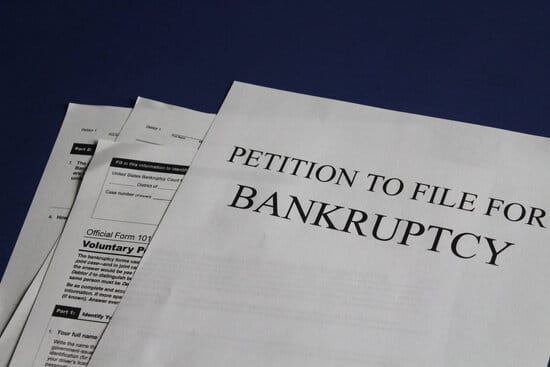Need an Attorney?
Greensboro Chapter 7 Bankruptcy Lawyer
If you’re facing significant debt and possible foreclosure on a limited income in Greensboro or the surrounding Triad area, Chapter 7 Bankruptcy may be a viable option. Start repaying and stop creditor harassment.
On Your Side
Chapter 7 Bankruptcy Lawyer Greensboro, NC
Chapter 7 bankruptcy is sometimes called the “straight” bankruptcy. It cancels most of your debts, but in exchange, you may have to surrender property.
Being forced to sell your assets is not always the case, however. A good lawyer will work directly with you to find exemptions. Or in layman’s terms, a certain value of property that you are allowed to keep. And Sam Spagnola is a good lawyer.
You may have ended up on this page because you know bankruptcy is imminent in your life. Or even that you’re just fed up with the stress of dealing with creditors always calling.
The best advice we can give is to act promptly and rationally. You need a qualified, dedicated attorney in Greensboro, NC who will act quickly and decisively to protect you, your assets, and your rights.

Protecting You
Don’t let your voice go unheard. You need representation who is looking out for you. Spagnola Law Firm is your advocate.
Protecting Assets
Keep your property and finances safe. Retain an attorney who understands what you need for security and comfort.
Protecting Rights
Don’t give up any of your rights without a fight. Assert your rights and know where you stand legally and financially.
Your Greensboro, NC Legal Advocate
The prospect of having to appear in court or comb through your finances can be intimidating. Between court dates, motions, and banging gavels, it’s tough to know where you stand and what your next moves should be.
That’s why we take a personal approach with all of our clients. We want to demystify the entire process. So you know exactly where stand and what your options are moving forward. The Spagnola Law Firm in Greensboro, North Carolina is your legal advocate and partner.
Whether it’s filing for bankruptcy or beginning your quest for debt relief, we want you to rest easy knowing exactly what’s happening with your case.
That’s how we not only achieve satisfactory resolutions in NC bankruptcy cases, but also provide peace of mind.

Keeping Your Assets
Real Financial Solutions

In the uncertain times leading up to a Ch 7 bankruptcy, it’s especially important to have legal counsel. You need someone who’s legally representing your best interests and your rights.
Reliable Counsel
Many who are declaring Chapter 7 bankruptcy for the first time don’t know where to start. “What happens to my property?” and “When should I file?” are common first questions we hear. When it comes to bankruptcy in North Carolina, we can advise.
Reasonable Solutions
Contrary to what many think, most people are able to keep their property in a Chapter 7 case. It all comes down to finding existing exemptions you’re entitled to. We work with you and with your finances to find those exemptions.
Personal Liability
Debt Relief
Secured Debts
About Spagnola Law Firm
Strong Legal Representation in Greensboro, NC
Filing for Ch 7 bankruptcy is a stressful time. It’s difficult to even know when to begin filing.
Finding the right legal representation is the best first step you can take. It’s how you can begin drawing up a game-plan and know your options moving forward.
The Spagnola Law Firm has worked with thousands of families and businesses in Greensboro and other areas of the Triad. We know the local legal system and we know how to protect your rights, interests, and assets. We consistently deliver the best results we can for every single client.
We believe everyone deserves not only their day in court, but fair and effective legal representation when that day comes. Everyone deserves a good lawyer.
If you’re facing a NC Chapter 7 bankruptcy, we’re happy to advise. We learn every nuance of your specific case to ensure you have the best legal counsel when that day comes.
Will Ch. 7 Bankruptcy Stop Collections?
Filing any bankruptcy puts into effect something called the “automatic stay.” The automatic stay immediately stops your creditors from trying to collect what you owe them. Which means no more pesky phone calls every hour.
How Do I File Chapter 7?
Prior to filing a bankruptcy, you must meet with an approved credit counseling agency no more than 180 days before filing a bankruptcy petition. Our firm has a list of counseling agencies and most credit counseling can be done via the Internet from your home.
What Do I Have to do to File For Bankruptcy?
To begin, our office needs complete information about your debts including the creditor’s name and address, the approximate date the account was opened, the approximate amount owed, and other information concerning your assets and liabilities.
Why Spagnola Law Chapter 7 Bankruptcy?
The Spagnola Law Firm is a federally designated debt-relief agency. We help people file for bankruptcy relief under the Bankruptcy Code. That means we’re familliar with how debt and bankruptcy law works and is practiced. Which we can use on your case.
